Introduction
Cane Corsos are known for their protective nature and loyalty
- Choosing the right large breed for your family is a big decision
- Other large breeds, like Great Danes and Mastiffs, have unique traits
- This guide compares to other popular large breeds
- We'll cover temperament, training, exercise, and more
- By the end, you’ll know which breed suits your lifestyle best
1. Temperament
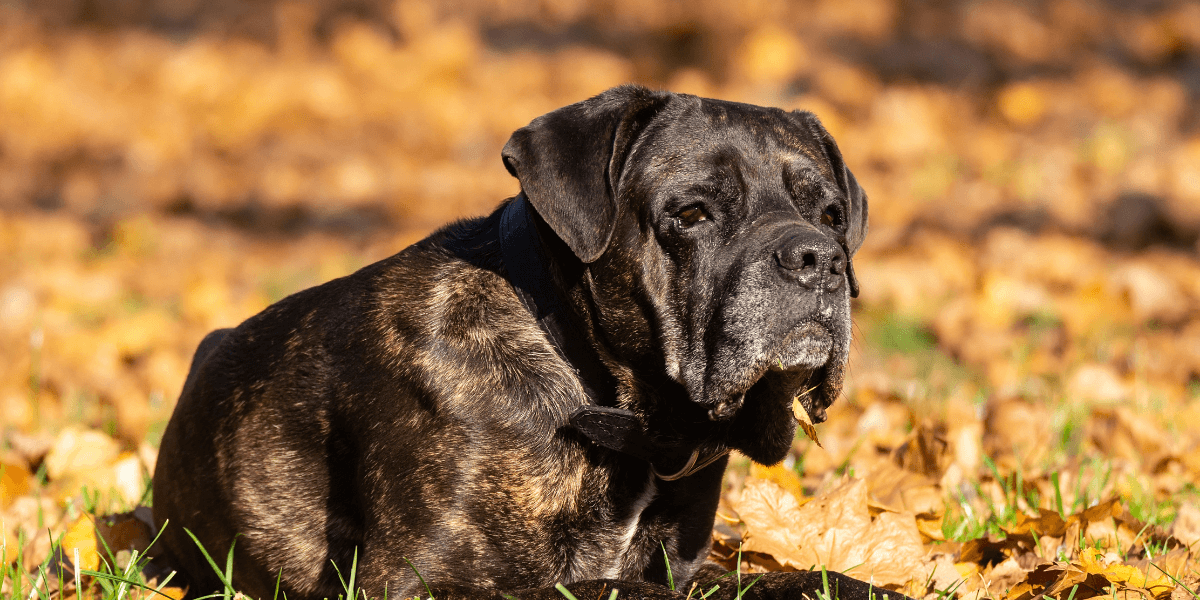
Each large breed has a unique temperament and personality.
- Cane Corso: Protective and loyal with a strong bond to their family
- Great Dane: Gentle giants known for their friendly and easygoing nature
- Mastiff: Calm and protective but can be stubborn at times
- Rottweiler: Confident and fearless, making them excellent guard dogs
- Bernese Mountain Dog: Affectionate and good-natured, great with kids
2. Training Needs
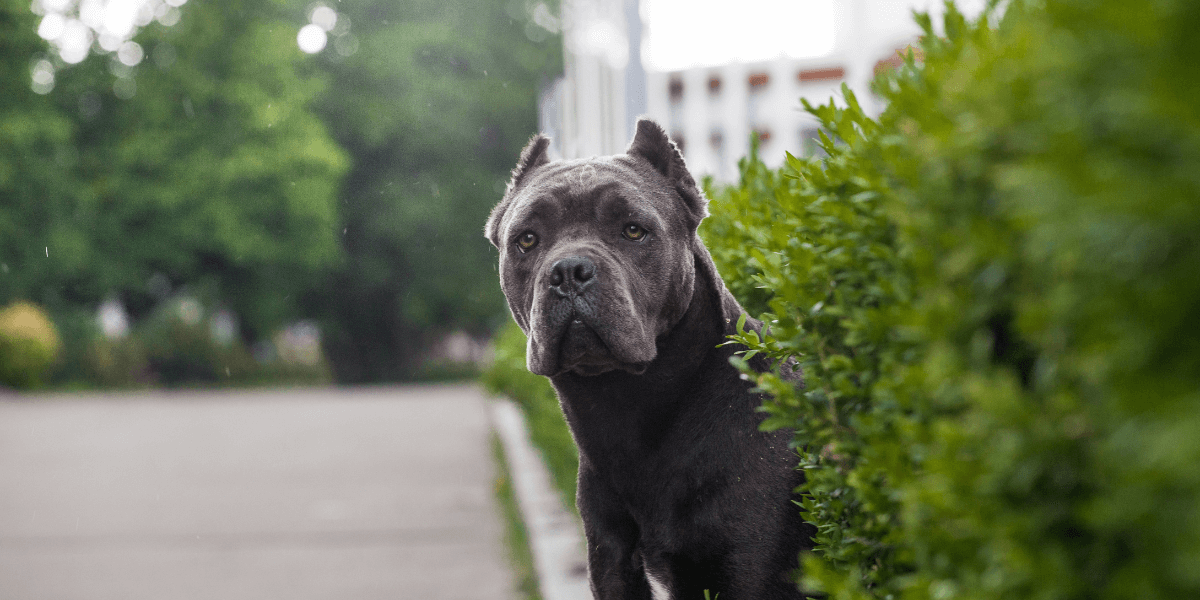
Training requirements can vary significantly between large breeds.
- Cane Corso: Needs consistent and firm training from an experienced owner
- Great Dane: Responds well to positive reinforcement methods
- Mastiff: Requires patience and consistent training to manage their size
- Rottweiler: Highly trainable but needs early socialization
- Bernese Mountain Dog: Eager to please but can be sensitive to harsh training
3. Exercise Requirements
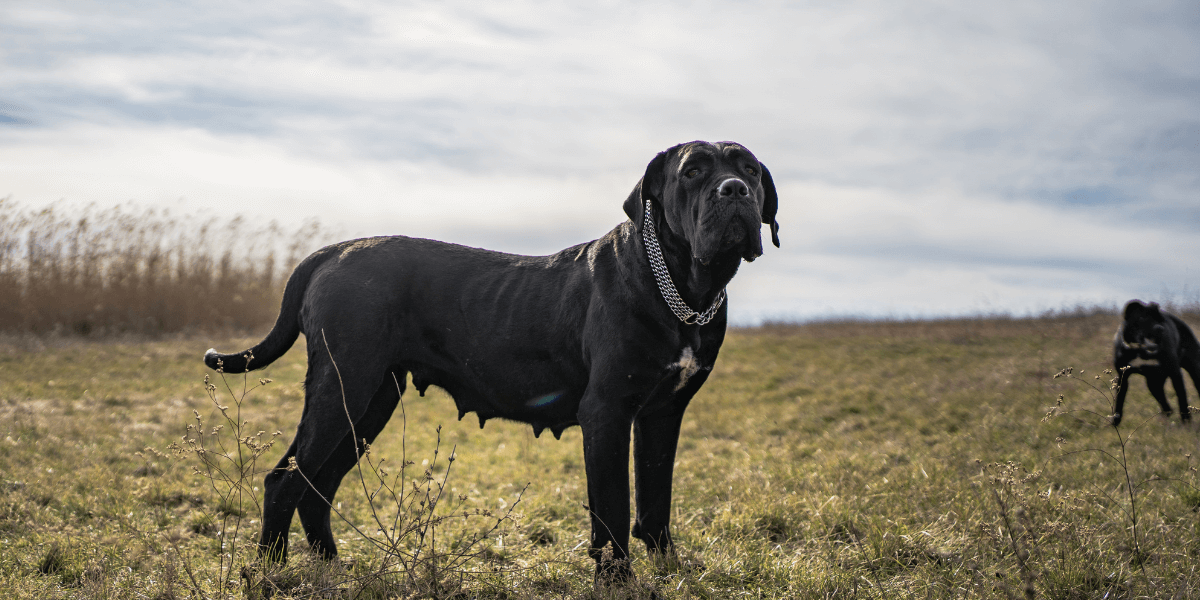
Exercise needs differ widely across large dog breeds.
- Cane Corso: Requires daily exercise to keep them mentally and physically fit
- Great Dane: Needs moderate exercise but not too intense due to their size
- Mastiff: Low to moderate exercise needs due to their laid-back nature
- Rottweiler: High energy, requiring plenty of exercise and mental stimulation
- Bernese Mountain Dog: Enjoys outdoor activities but needs moderate exercise
4. Grooming and Maintenance
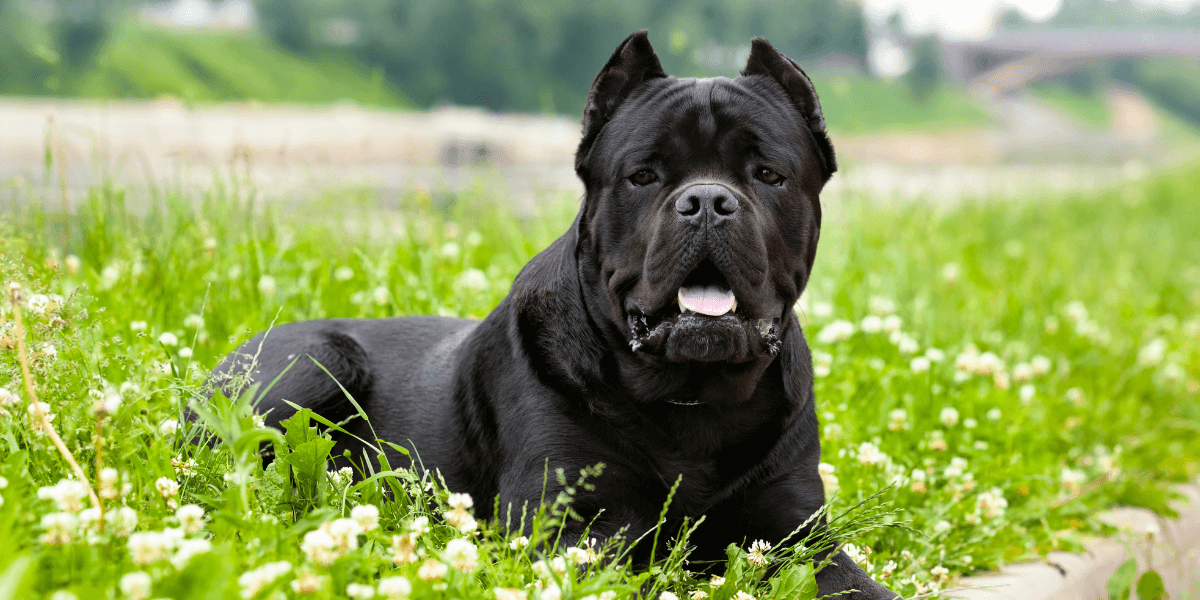
Different grooming needs for each breed may affect your choice.
- Cane Corso: Short coat, low grooming needs but sheds moderately
- Great Dane: Short coat, requires occasional brushing to manage shedding
- Mastiff: Low grooming needs, but regular ear and skin checks are essential
- Rottweiler: Short coat, easy to maintain with weekly brushing
- Bernese Mountain Dog: Long coat, requires regular grooming to prevent matting
Discover Doberman Pinscher grooming tips for insights into Cane Corso coat care.
5. Health Considerations
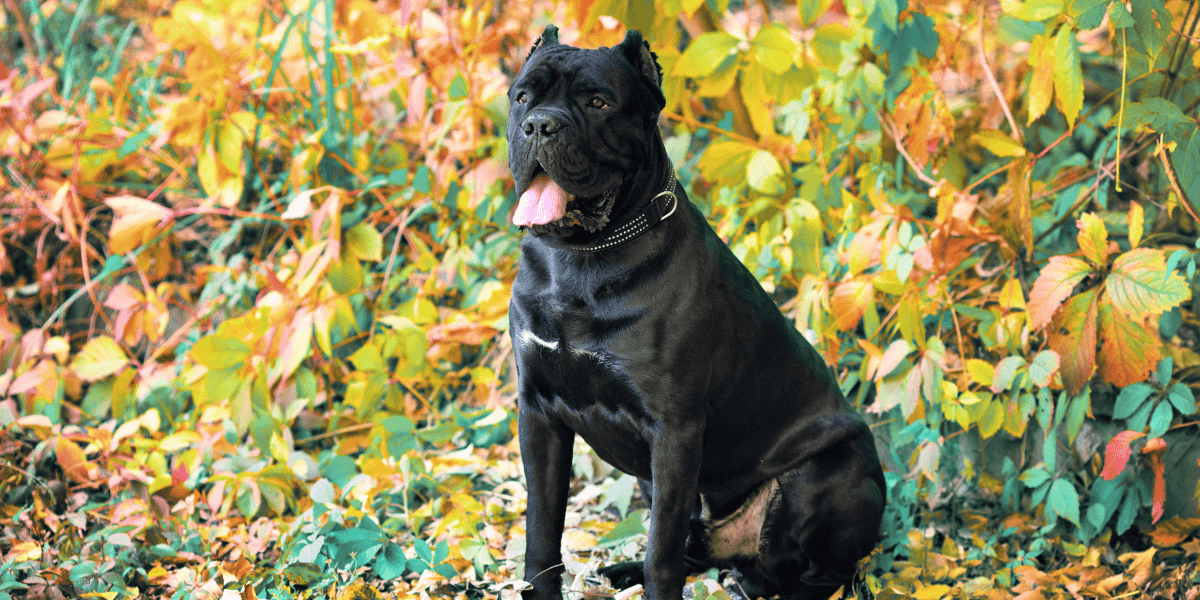
Health issues are a key factor to consider when choosing a breed.
- Cane Corso: Prone to hip dysplasia and heart conditions
- Great Dane: Susceptible to bloat and joint problems due to their size
- Mastiff: Commonly faces issues like hip dysplasia and obesity
- Rottweiler: At risk of hip dysplasia, cancer, and heart problems
- Bernese Mountain Dog: Prone to cancer and joint issues, short lifespan
For a comprehensive understanding of Cane Corso health considerations, read this detailed guide.
6. Living Conditions
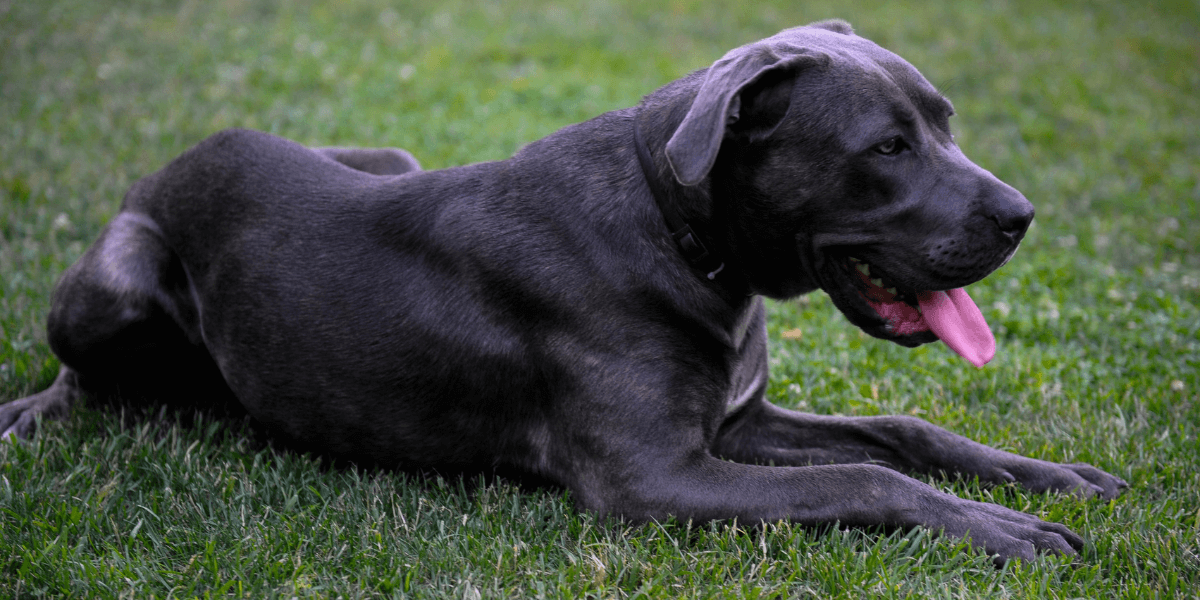
Large breeds have specific needs when it comes to their living environment.
- Cane Corso: Thrives in homes with space for activity and a secure yard
- Great Dane: Adapts well to apartments if given enough exercise
- Mastiff: Prefers quiet homes with room to roam but not overly active
- Rottweiler: Needs space for play and a secure area due to their energy
- Bernese Mountain Dog: Enjoys cool climates and a spacious yard to explore
7. Family Compatibility
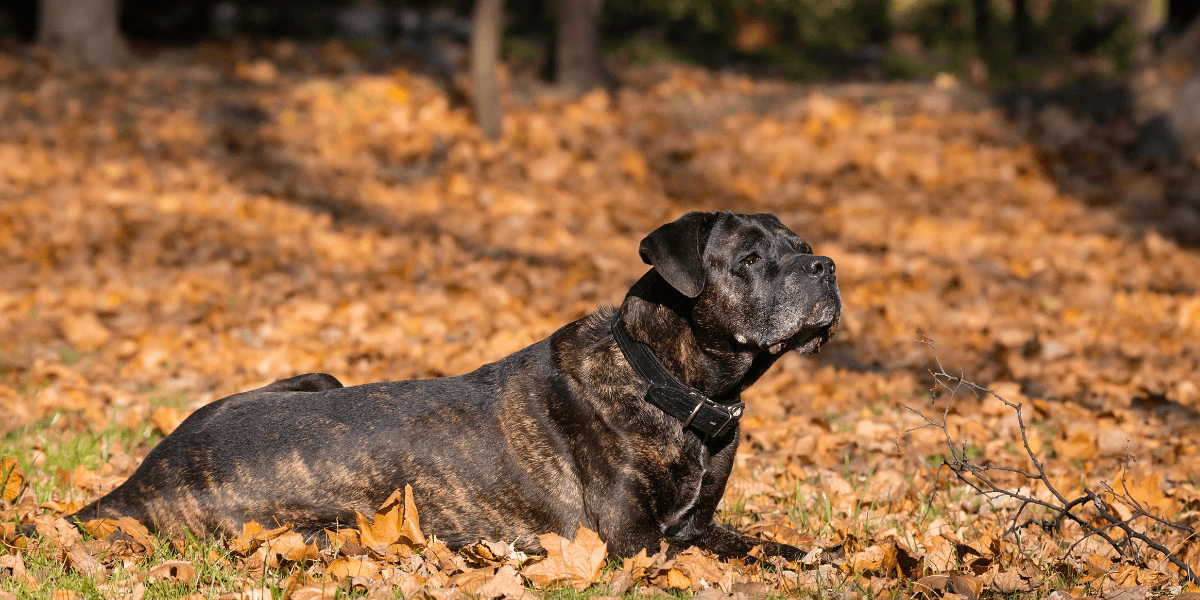
Some breeds are better suited for families than others.
- Cane Corso: Protective and loving but may need supervision with small kids
- Great Dane: Gentle and friendly, typically great with kids and other pets
- Mastiff: Loyal and calm, often patient with children and families
- Rottweiler: Good with families when well-socialized but can be wary of strangers
- Bernese Mountain Dog: Affectionate and friendly, great with kids and other animals
See how Cane Corsos compare as family dogs to Bernese Mountain Dogs.
FAQs
1. What is the lifespan of a Cane Corso?
- Typically, Cane Corsos live between 10 to 12 years
2. Are Cane Corsos good with children?
- Yes, but they require supervision due to their protective nature
3. Do Cane Corsos need a lot of grooming?
- No, they have a short coat with moderate shedding
4. How much exercise does a Cane Corso need?
- They require daily exercise and mental stimulation
5. Are Cane Corsos easy to train?
- They need consistent, firm training from experienced owners
Conclusion
- Finding the right large breed depends on your lifestyle and preferences
- Cane Corsos are excellent for those seeking a loyal, protective companion
- Great Danes are great for families wanting a friendly, gentle giant
- Mastiffs suit those preferring a calm, low-energy dog with a protective streak
- Rottweilers are ideal for active owners who want a confident guard dog
- Consider your home size, activity level, and family dynamics
Compare Cane Corsos and Bernese Mountain Dogs in choosing your ideal gentle giant.
References




